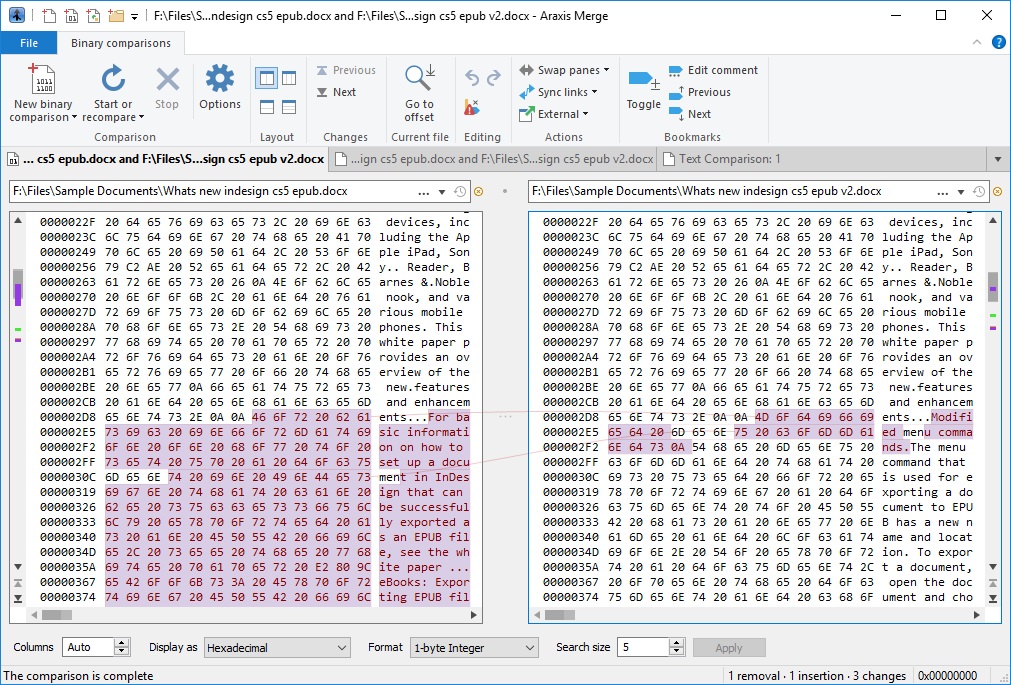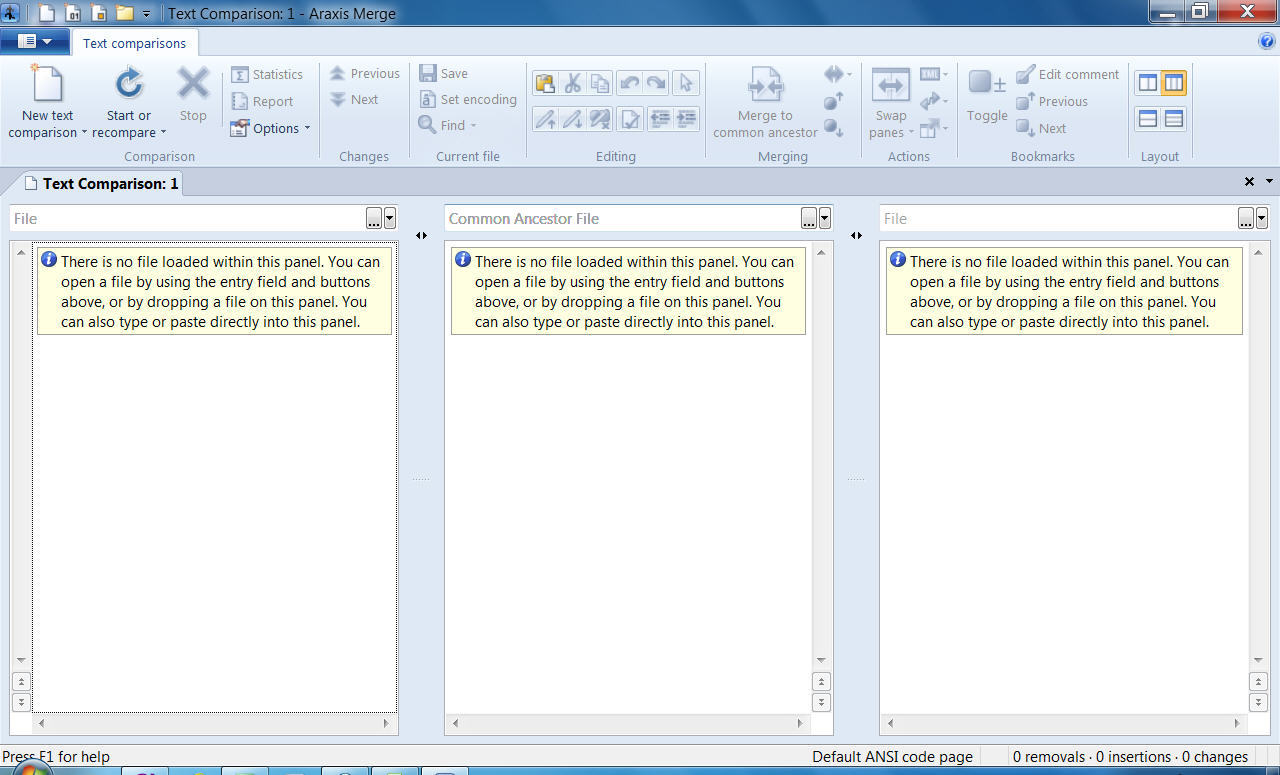

Working with the common ancestor file in the middle file panel, you can merge changes from the two derived revisions into it to produce a final merged file.

See the related topics below for more information. Using three-way file comparisonsĪll of the comparison, editing and merging features of two-way file comparisons apply to three-way comparisons. The differences between each of the revisions and the ancestor are clearly displayed in this arrangement. Merge is designed to be most effective when the common ancestor file is used as the centre file of the three files being compared, with the two modified versions on either side. Ordering of files within the comparison display

Use the Two-way (vertical) and Three-way (vertical) buttons in the ribbon to switch between two-way and three-way comparisons.
#Araxis merge tutorial professional
The Professional Edition even features Automatic Folder Merging, making it possible to perform a quick three-way merge of entire source trees. Merge Professional also supports Automatic File Merging, to speed up three-way merges. Three-way file comparisons can be launched directly from a three-way folder comparison, allowing efficient integration of entire branches of source code. Merge integrates with a number of such configuration management systems. The need to do this typically arises when more than one person is working simultaneously on a set of source files stored in a version control or configuration management system. Three-way file merging is frequently used to merge two derived files into a common-ancestor or base version. Note that merging capability is available only for text comparisons and folder comparisons. The Professional Edition of Merge enables you to compare and merge three files side-by-side.







 0 kommentar(er)
0 kommentar(er)
